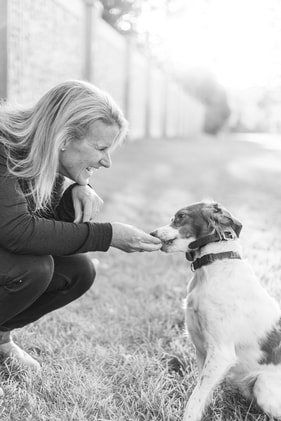
In war, effective use of the element of surprise can make the difference between victory and defeat. Similarly, in conflict resolution, applying surprise to already volatile conflicts can cause sudden combustion and push people toward contempt rather than mere annoyance. In short, using the element of surprise in interpersonal conflicts can lead to serious defeat, especially in our closest relationships.
For example, how did you feel and react when you have returned to your car only to find a heavy parking fine for a minor violation? Have you ever received a phone call about a child’s injury or fight at school that knocked you off balance on an otherwise normal day? What about the shock of a car accident when someone else failed to follow a traffic rule, only to ruin or damage your otherwise functional car?
No one likes these kinds of negative surprises. Nor do we really enjoy additional less shocking developments that further surprise us with more bad news. When we receive and are digesting bad news, we are put on the alert to fight or flee. While we are wired to be prepared to handle new stresses, when we receive new threats when we are already on high alert, we may explode with only the slightest provocation.
Let me illustrate. Recently, I decided to take my dog, Maisie, on a run while I rode my bike alongside her. I’ve biked up the same bike and running path many times with my faithful Brittany spaniel on a leash by or near my side. While dangerous, I have never felt too threatened and have been treated well by my fellow travelers up the canyon pathway during the past year.
However, one particular morning, my dog, Maisie, suddenly swerved around a hooded male jogger on my right along the concrete pathway. Following close behind my leashed dog, I heard a blur of negative comments as I whizzed around the jogger on my bike. Because I was cold and not too interested in what the jogger had said, I continued on my way as Maisie raced along the path. I hoped to simply avoid this stranger who shouted incomprehensible things while I enjoyed the fresh air and my energetic dog.
Yet, while returning home on the same pathway down from the canyon, I noticed the same hooded male jogger plodding toward me at a methodical pace. I didn’t think much of him because he drifted from the concrete path toward a dirt side trail off to my left. Without great concern, I proceeded to zoom by him alongside my dog.
This time around, I was surprised when this same man began to call out insistently, repeatedly, and loudly: “That’s illegal! That’s illegal! That’s illegal!’ No one had ever cared so much about my riding a bicycle with a dog on a leash besides my husband who is concerned with saving my life from a nasty bike accident. As I pedaled out of earshot and digested his words, my heart raced for a few minutes. I questioned, “Is it illegal to ride a bike with a dog on a leash?” I had never heard of such a law, but it was possible that my suburban town might have such a code.
I have since learned that rarely do US city codes outlaw riding a bike while running a dog on a lead. (Feel free to peruse the world of social media for various opinions on my presumed bike-dog violation). Civic codes aside, I spent some time reflecting on why my bike riding with a dog upset this jogger so much. While I didn’t interview him later for details, I sense that my dog suddenly appearing before him as he ran otherwise undisturbed listening to his headphones surprised him. He was not expecting to see a medium sized dog darting in front of him followed by a full-sized biker—even if I was clear of his person in terms of direct physical proximity.
That sense of shock and surprise led to his angry shouting—both the first time that I didn’t completely understand and upon my return when he called out several times that what I was doing was illegal. I think the shock of seeing Maisie at his feet, awoke a sense of fight or flight that led to anger based on his need for safety. I am presuming this, but the explanation helps clarify his rant upon seeing my return down the pathway, even when he was well out of the way of me and my dog.
When has a negative surprise sent you into a fight-or-flight tailspin? Or, when have you chosen to withhold negative information only to shock others into an overwhelming sense of conflict? I’m guessing that all of us have either been shocked by bad news or have shocked others with bad news. Naturally, we may have unnecessarily sent otherwise manageable conflict into something shocking and overwhelming.
So, I think the challenge here is to be very careful to not shock and surprise others in ways that exacerbate and fuel unnecessary conflict. Of course, we don’t want to shield others from truths that they need to eventually hear. However, we can be more considerate and prepared with relaying details and developments that change, inflate, or expand already difficult situations.
Finally, we can demonstrate compassion and understanding by addressing issues early before they grow so large that they have the “drop the bomb” potential. We can learn bravery in dealing with conflict more directly before it becomes overwhelming or surprising—in a bad way-- to us and all those involved.
My two cents for the day!
For example, how did you feel and react when you have returned to your car only to find a heavy parking fine for a minor violation? Have you ever received a phone call about a child’s injury or fight at school that knocked you off balance on an otherwise normal day? What about the shock of a car accident when someone else failed to follow a traffic rule, only to ruin or damage your otherwise functional car?
No one likes these kinds of negative surprises. Nor do we really enjoy additional less shocking developments that further surprise us with more bad news. When we receive and are digesting bad news, we are put on the alert to fight or flee. While we are wired to be prepared to handle new stresses, when we receive new threats when we are already on high alert, we may explode with only the slightest provocation.
Let me illustrate. Recently, I decided to take my dog, Maisie, on a run while I rode my bike alongside her. I’ve biked up the same bike and running path many times with my faithful Brittany spaniel on a leash by or near my side. While dangerous, I have never felt too threatened and have been treated well by my fellow travelers up the canyon pathway during the past year.
However, one particular morning, my dog, Maisie, suddenly swerved around a hooded male jogger on my right along the concrete pathway. Following close behind my leashed dog, I heard a blur of negative comments as I whizzed around the jogger on my bike. Because I was cold and not too interested in what the jogger had said, I continued on my way as Maisie raced along the path. I hoped to simply avoid this stranger who shouted incomprehensible things while I enjoyed the fresh air and my energetic dog.
Yet, while returning home on the same pathway down from the canyon, I noticed the same hooded male jogger plodding toward me at a methodical pace. I didn’t think much of him because he drifted from the concrete path toward a dirt side trail off to my left. Without great concern, I proceeded to zoom by him alongside my dog.
This time around, I was surprised when this same man began to call out insistently, repeatedly, and loudly: “That’s illegal! That’s illegal! That’s illegal!’ No one had ever cared so much about my riding a bicycle with a dog on a leash besides my husband who is concerned with saving my life from a nasty bike accident. As I pedaled out of earshot and digested his words, my heart raced for a few minutes. I questioned, “Is it illegal to ride a bike with a dog on a leash?” I had never heard of such a law, but it was possible that my suburban town might have such a code.
I have since learned that rarely do US city codes outlaw riding a bike while running a dog on a lead. (Feel free to peruse the world of social media for various opinions on my presumed bike-dog violation). Civic codes aside, I spent some time reflecting on why my bike riding with a dog upset this jogger so much. While I didn’t interview him later for details, I sense that my dog suddenly appearing before him as he ran otherwise undisturbed listening to his headphones surprised him. He was not expecting to see a medium sized dog darting in front of him followed by a full-sized biker—even if I was clear of his person in terms of direct physical proximity.
That sense of shock and surprise led to his angry shouting—both the first time that I didn’t completely understand and upon my return when he called out several times that what I was doing was illegal. I think the shock of seeing Maisie at his feet, awoke a sense of fight or flight that led to anger based on his need for safety. I am presuming this, but the explanation helps clarify his rant upon seeing my return down the pathway, even when he was well out of the way of me and my dog.
When has a negative surprise sent you into a fight-or-flight tailspin? Or, when have you chosen to withhold negative information only to shock others into an overwhelming sense of conflict? I’m guessing that all of us have either been shocked by bad news or have shocked others with bad news. Naturally, we may have unnecessarily sent otherwise manageable conflict into something shocking and overwhelming.
So, I think the challenge here is to be very careful to not shock and surprise others in ways that exacerbate and fuel unnecessary conflict. Of course, we don’t want to shield others from truths that they need to eventually hear. However, we can be more considerate and prepared with relaying details and developments that change, inflate, or expand already difficult situations.
Finally, we can demonstrate compassion and understanding by addressing issues early before they grow so large that they have the “drop the bomb” potential. We can learn bravery in dealing with conflict more directly before it becomes overwhelming or surprising—in a bad way-- to us and all those involved.
My two cents for the day!

 RSS Feed
RSS Feed